![]() — Home — Business News
— Home — Business News
Weekly Business News from Myanmar
-
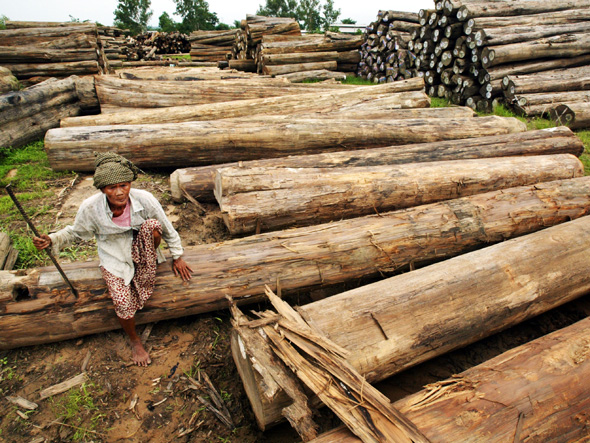
There is no inflow of foreign investments in oil and gas, mining and construction sectors as of September this fiscal year
As of September of this fiscal year, oil and gas, mining and construction sectors had not yet seen an inflow of foreign investments, according to the Directorate of Investment and Company Administration. The total foreign investments in energy, agriculture, livestock and fishery, manufacturing, transport and communication, hotel and tourism, real estate, industrial development and other services sectors has reached more than US$4 billion (5.4 trillion kyat). Oil and gas sector has seen the biggest foreign investments while the construction sector sees the lowest foreign investments. According to the second five-year National Development Plan (2016-2017 to 2020-2021), the government plans for increased export volume by inviting foreign investment, promoting the private sector, transforming regional development projects into the commercial ones and ensuring private investments that benefit the people. -
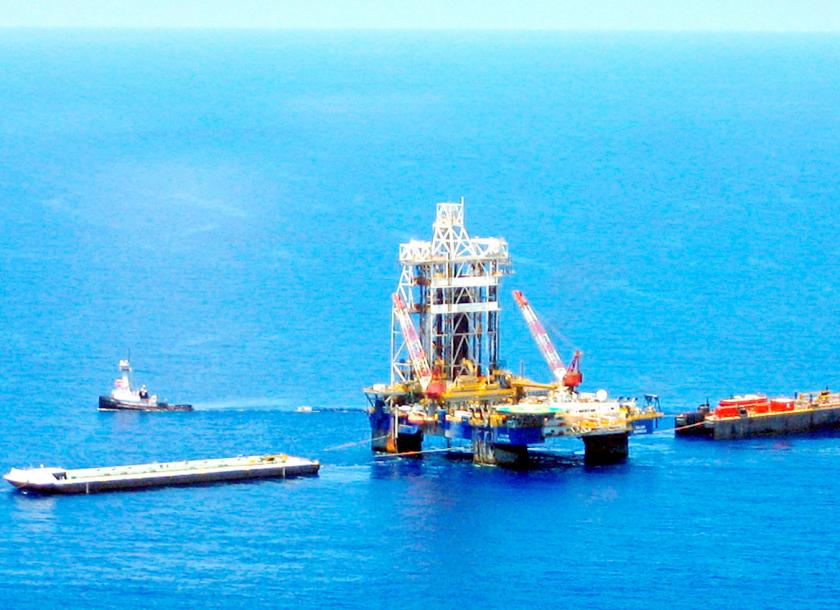
Energy firms which do not progress from the initial study period to actual exploration, will have their oil and gas contract revoked next year
Energy firms with permission to conduct offshore oil and gas exploration activities in Myanmar will have their contracts cancelled next year if they do not progress from the initial study period to actual exploration, sources from the Ministry of Electricity and Energy told The Myanmar Times. The contracts will be rescinded if these firms do not proceed according to the contract terms.”They can stop if they don’t want to continue. If they want to drill, they will have to drill by next year and if they don’t drill, we will revoke the contract. If they want to conduct further surveys without drilling, they can also do so,” the sources said. International oil and gas companies are given permission to explore for oil and gas in Myanmar after signing Production Sharing Contracts (PSC) with State-owned Myanma Oil and Gas Enterprise (MOGE), which controls the rights to the country’s offshore oil and gas blocks. The last PSCs were signed during 2014 and early 2015. Starting from 2015, the companies were granted study periods of up to one year for shallow water blocks and two years for deep water blocks. -
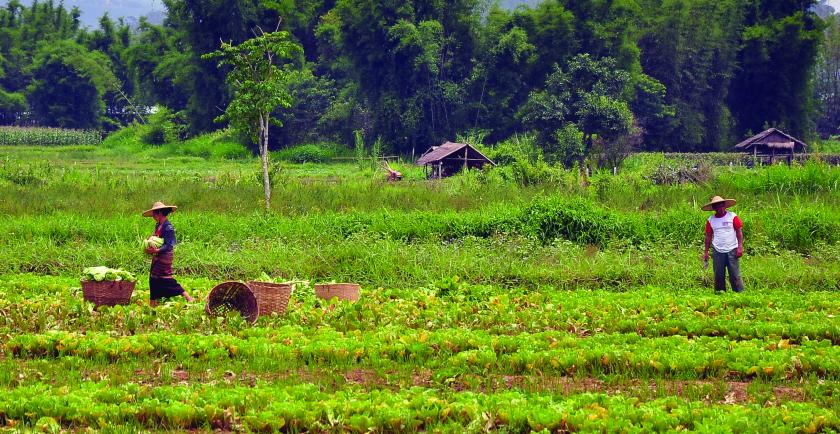
To promote Myanmar’s agriculture sector, Department of Cooperatives in the Ministry of Agriculture, Livestock and Irrigation provides loans to assist farmer coops
Since September 2010, when the Union Soli¬darity Development Party-led government took office, a total of K522bn has been granted in loans to promote the country’s agriculture under the aegis of the Department of Co¬operatives in the Ministry of Agriculture, Livestock and Irrigation. During this period, one of China’s three in¬ternational banks, Exim Bank of China, provided $400m in loans to Myan¬mar’s agriculture sector. Of this total, K522bn is being managed by the De¬partment of Cooperatives. “The Chinese loans, granted three years ago, are for a ten-year period . China is also provid-ing another type of loan to enable farmers to buy machinery under a hire purchase system,” U Aung Thaung Myint, Deputy Di¬rector of the Department of Cooperatives, said. -

Yangon Chief Minister plans to develop Myanmar’s largest city of Yangon into a regional economic and trading hub
Long-term plans to develop Myanmar’s largest city of Yangon into a regional economic and trading hub were high on the agenda at a meeting held recently between Phyo Min Thein, the regional government’s chief minister, and a team from Oxford Business Group (OBG), according to a press release on October 9. Yangon Chief Minister Phyo Min Thein told OBG’s representatives that the regional government aimed to build on Yangon’s competitive advantages, which include its growing population, traditional role as the county’s main commercial and trading city and strategic location that could become a gateway for Myanmar’s landlocked neighbours to access international markets. As the Chief Minister explained, “Maritime trade will play a determinant role, since 90 percent of the goods imported into Myanmar enter through the Port of Yangon”. -
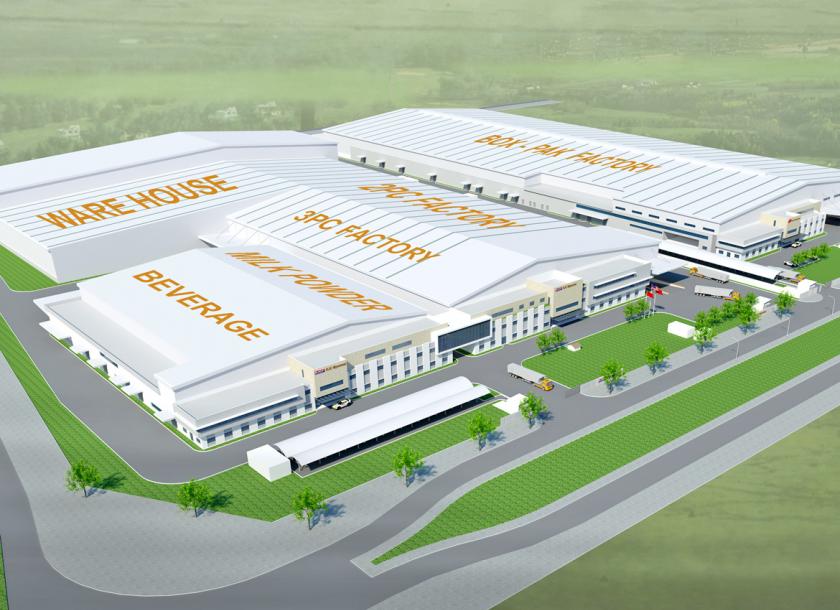
Kian Joo Group, the largest packaging firm in ASEAN, invests in a packaging plant in Thilawa Special Economic Zone (SEZ)
Kian Joo Group, the largest packaging business in ASEAN, is investing in a packaging plant in the Thilawa Special Economic Zone (SEZ). Construction of the plant is expected to be complete by the first quarter of next year. Malaysia-based Kian Joo is one of the biggest can manufacturers within ASEAN, manufacturing a wide range of products and providing packaging services. The group has manufacturing facilities in Malaysia and Vietnam, with its international procurement and marketing centre in Singapore. Kian Joo first expanded into Thilawa in early 2015. The company set up Kianjoo Can Myanmar (KJMM) and Boxpak Myanmar (BPMM) with an initial capital of US$16 million and $7.5 million respectively for the Thilawa project. The total investment cost is expected to amount to $75 million for KJMM and $38 million for BPMM. -
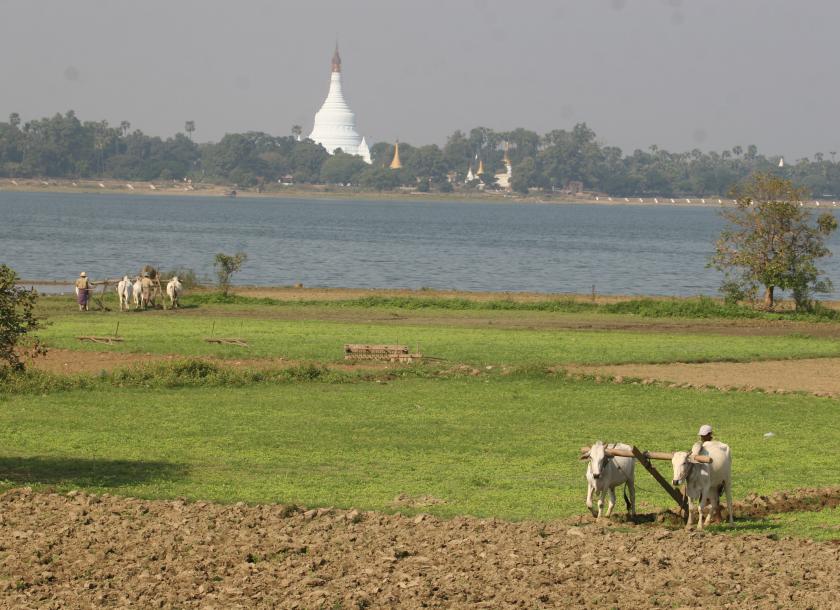
In partnership with the German Corporation for International Cooperation (GIZ), DICA published its first social-economic report for investors
The Directorate of Investment and Company Administration (DICA) in partnership with the German Corporation for International Cooperation (GIZ) have published a detailed report entitled The Socio-Economic Atlas of Myanmar. For the first time, the report will provide official details and statistics on Myanmar's geography, population and climate as well as its education transportation, healthcare and communications systems according to each region. The report will help foreigners interested in Myanmar make better investment decisions and raise the volume of foreign direct investments coming into the country. -
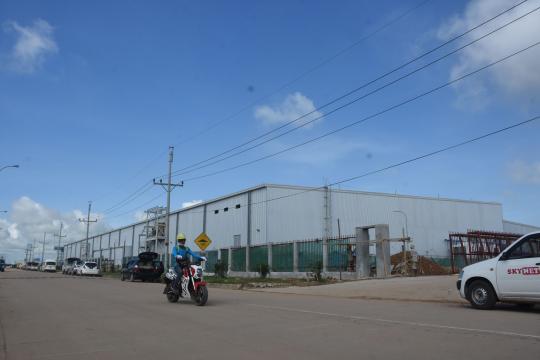
Thilawa SEZ project in Zone B has sold out 26 per cent shares and investors from many countries are interested to invest in Thilawa SEZ
The total foreign investment in Thilawa Special Economic Zone Project has exceeded US$1.1 billion (1.363 trillion kyat), said Myint Zaw, officer and general manager of Myanmar Japan Thilawa Development Ltd. “We have sold out 26 per cent of Thilawa SEZ (Zone-B). The construction of Zone-A is 96 per cent completed,” he added. Currently, 17 countries have invested in Zone-B with Japan topping the list of investors. Many countries have offered to inject their investments into Thilawa SEZ project. Some investors want to invest in labour-intensive and import-substituting industries. -

To facilitate a second EITI report, Myanmar Oil and Gas Enterprise (MOGE) revealed the details of its other account
Negotiations are underway for the Myanmar Oil and Gas Enterprise (MOGE) to reveal details of its Other Account to facilitate a second report under the Extractive Industries Transparency Initiative (EITI). Myanmar published its first EITI report on January 2, 2016, opening up its extractive sector to public scrutiny for the first time. The country’s natural resources include oil and gas, minerals and gems. The EITI is a global standard which encourages good governance and transparency over the income generated within a country’s extractive sector. By implementing EITI standards, Myanmar also aims to improve its tax collection system. Although Myanmar has been an EITI member since 2014, its EITI status has yet to be assessed pending results of a second report, which will include information on income generated by the Myanmar oil and gas and mining sectors during the 2014-15 and 2015-16 fiscal years. -

Local log exporters concerned about foreign competition and requested the government to hold tenders only open to domestic log traders
LOG exporting businesses in Myanmar have requested the government to hold tenders only open to domestic log traders. Log merchants have called for the Myanma Timber Enterprise (MTE), which is under the Ministry of Resource and Environmental Conservation, to hold separate tenders for local wood-based industry merchants engaging in the business of exporting logs of wood. The request was made during an October 2 event held by the Myanmar Forest Products Merchants Federation (MFPMF) in Yangon. “The local merchants are not able to compete with foreign export bidders, who have the market, technology and good financing [in terms of trade and other loans]. The government needs to arrange a separate tender for local merchants for log export as locals can’t compete with foreign investors in the same tender,” U Thein Che, vice chair of MFPMF, said. -
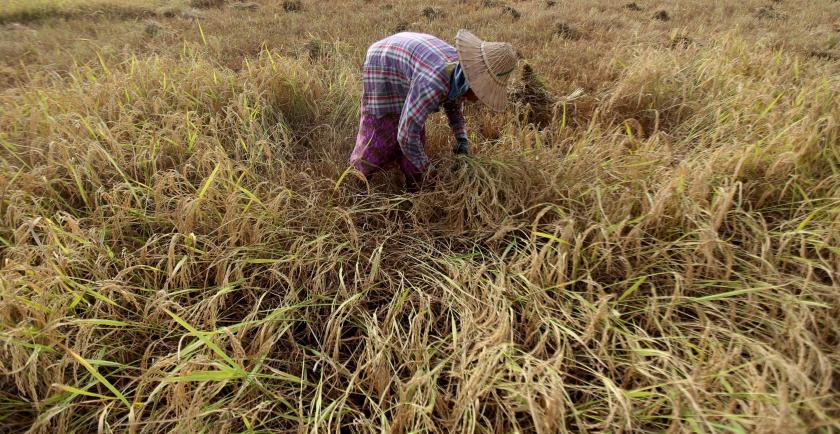
Agricultural sector is the top priority as it is the source of 70 percent of the country’s livelihood
The prevalence of natural disasters, the lack of sufficient reaction plans, and defi¬cient infrastructure are major barriers to foreign investment in the agricul¬ture sector, Dr. Soe Tun, Vice Chairman of Myan¬mar Rice Federation, said. In the agricultural sec¬tor, both foreign and lo¬cal investment are lower than 1 percent of total investment because the industry offers investors little stability and guaran¬tee from adverse weather, insects and no access to supportive infrastructure such as milling facilities, electricity, and infrastruc¬ture, Dr. Soe Tun said. This year, the majority of foreign direct invest¬ment (FDI) went to the oil and gas sector, repre¬senting 30 percent of total FDI while the agriculture sector received about 0.51 percent.
Business News
Copyright © 2014 Business Information Center All Rights Reserved.







